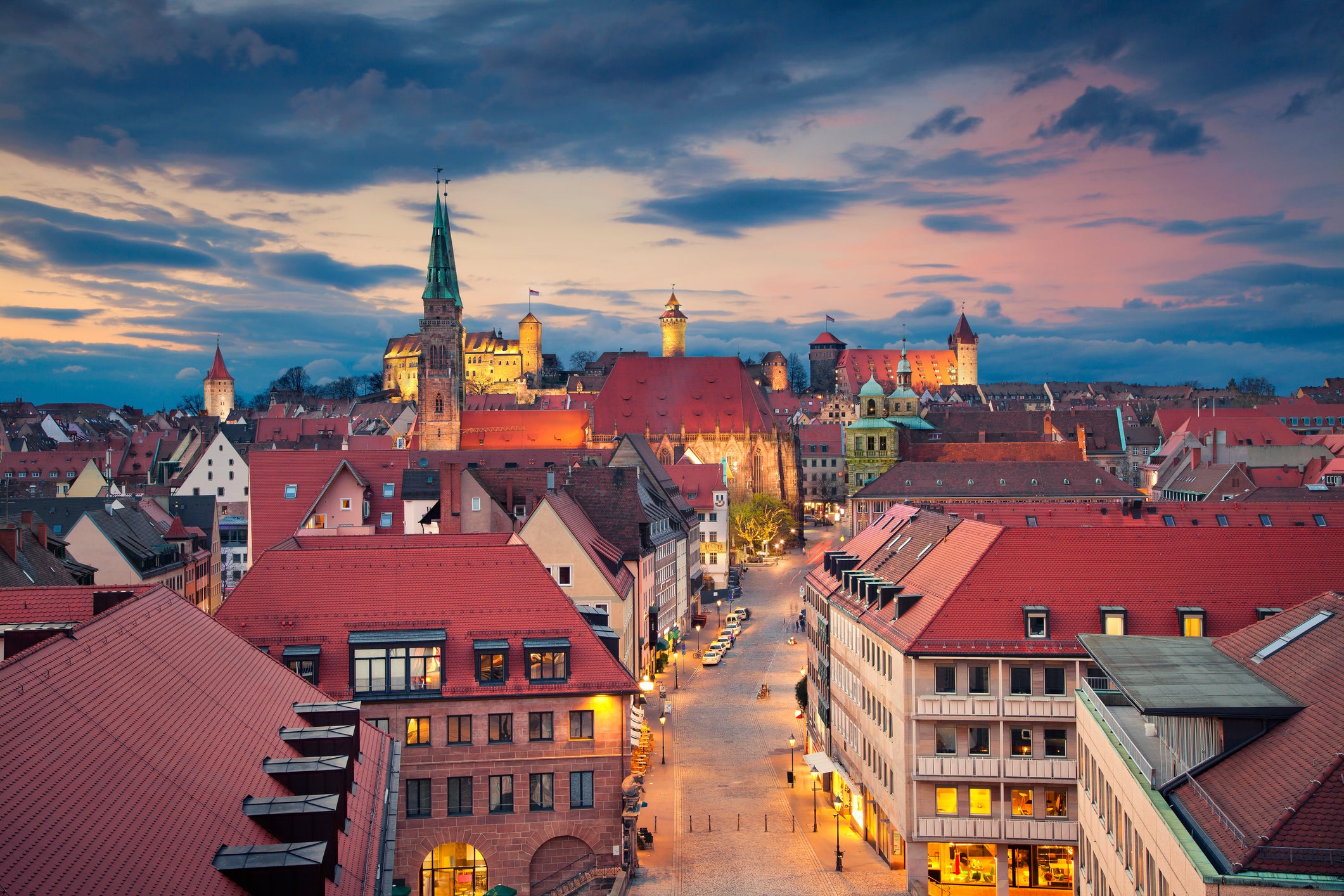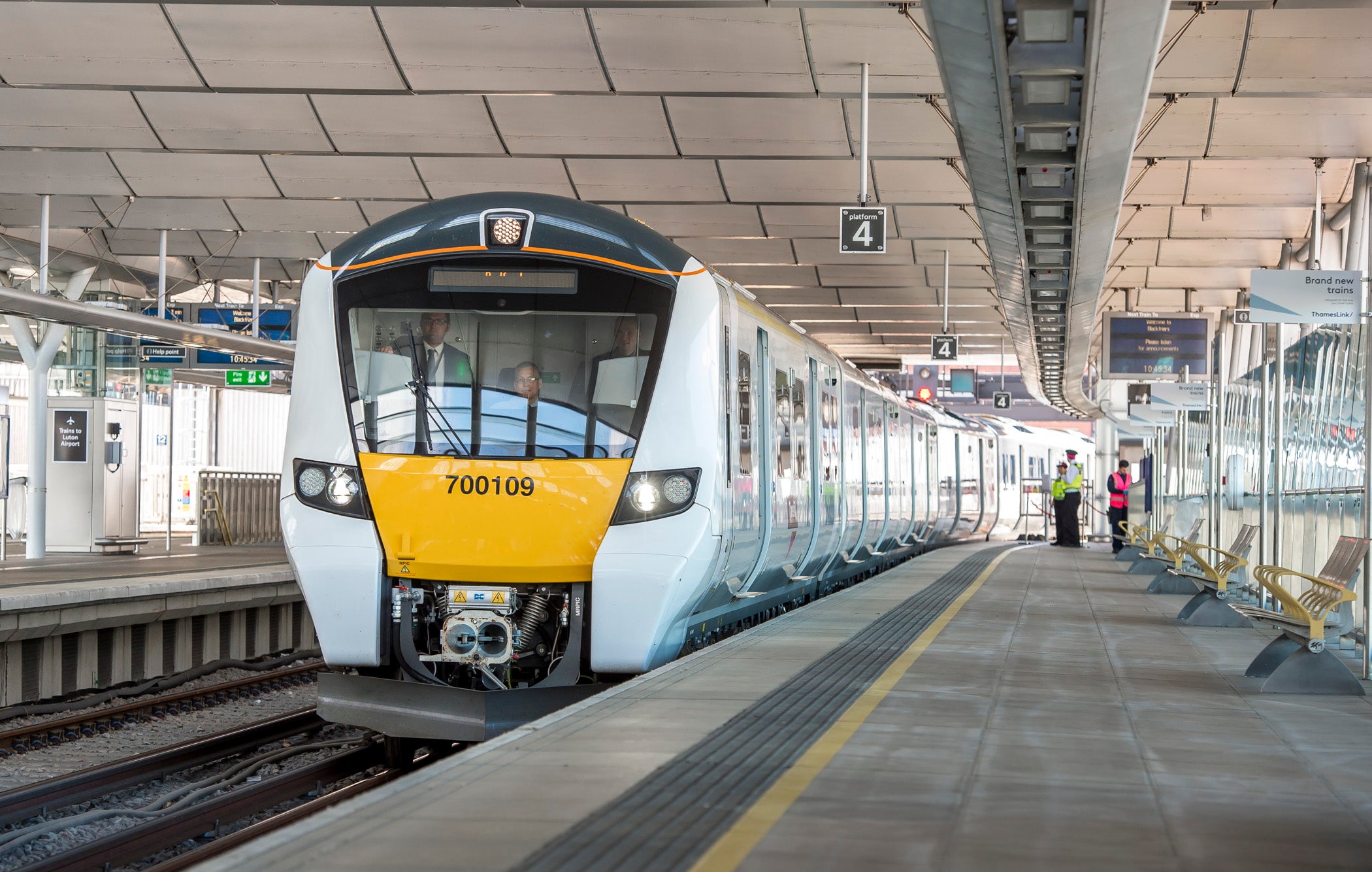Is sustainable fuel the answer to aviation’s environmental damage?
Simon Calder answers your questions on sustainable flying, the delights of Nuremberg and missed flights compensation

Q I’ve seen all the fuss about Virgin Atlantic’s SAF [“sustainable aviation fuel”] initiative. I work in the airline industry and many of my colleagues are deeply sceptical about whether SAF can ever be a significant way to reduce the impact of aviation. What do you think?
Name supplied
A Virgin Atlantic is claiming a world first for flying a Boeing 787 Dreamliner from London Heathrow to New York JFK powered entirely by SAF on Tuesday. It is the first transatlantic flight by a passenger aircraft, although no paying customers will be on board.
The aviation industry is keen to demonstrate its enthusiasm for reducing the damage caused by flying: last week Emirates operated a demonstration flight in which one of the four engines of an Airbus A380 “SuperJumbo” was powered using 100 per cent SAF.
The fuel, which is derived from a range of sources including waste cooking oil, is claimed by Emirates to “reduce carbon emissions by up to 85 per cent” compared with fossil fuel. Virgin Atlantic goes for a more modest 70 per cent reduction, but even that figure is disputed by environmental campaigners.
The merits and drawbacks of SAF comprise a complex issue with no easy answers. There is no argument that the amount of CO2 pumped out by the engines is exactly the same as traditional aviation fuel (kerosene); the savings come over the lifecycle of the fuel – for example growing plants, which takes CO2 from the atmosphere, or preventing methane emissions from landfill waste. Campaigners also say that growing crops specifically to be converted to fuel can damage biodiversity and cause deforestation – making it worse than using fossil fuels.
Even if you accept all the claimed benefits of SAF, the sheer lack of availability of the fuel is a serious problem for the industry. While modern aircraft can happily fly without modification on a blend of kerosene and SAF, it is simply not available in viable quantities in most parts of the world.
To find a positive element: the fact that there is now much wider discussion is welcome, and hopefully more travellers will be engaged with the subject – and the impact of their journeys. But there is also a risk that some passengers may be soothed into believing there is a simple and painless solution to the impact of aviation on the planet, which is certainly not the case.

Q Could I see the sights of Nuremberg in five hours, or should I stay overnight?
Callum McG
A As with many interesting “second-tier” European cities, ideally visitors should spend 48 hours to make the most of Bavaria’s beautiful second city. But it is a fair question to ask: Nuremberg is compact, and makes an excellent place to pause for a few hours en route between other German cities.
From the main station (Hauptbahnhof), Konigstrasse runs northwest straight into the city centre – conveniently passing the main tourist office, where you can pop in to collect a map. The centre of the Altstadt (old town) is the Hauptmarkt, accessible by either bridge across the Pegnitz river: Museumsbrucke or Fleischbrucke. Admire the Schoner Brunnen, decorated by a pyramid of 40 figures.
The main attraction is the vast Burg – castle – which dominates the city as a symbol of the imperial power of Nuremberg. Back in the old town, check out the spectacular half-timbered Albrecht Durer’s House – the only surviving residence of the Renaissance artist outside Italy.
For a meal, I heartily recommend cosy and historical Bratwursthausle, adjacent to St Sebald’s church, where the sausages are cooked over wood and served with some of Bavaria’s best beer. St Sebald’s is said to be where Pachelbel first played his “Canon in D”.
The grim recent past of Nuremberg – called “the most German of cities” by a Nazi-era mayor – is confronted in the shape of the Way of Human Rights, a sequence of stone pillars engraved with the 30 articles of the UN declaration. Take S-Bahn line 2 from Hauptbahnhof to reach the Reichsparteitagsgelande, the former Nazi Party rally grounds – where you may get an insight into collective madness, with chilling accounts of the rise of Hitler.
I have not even mentioned the excellent museums, from rail to modern art, that make a longer visit to Nuremberg well worthwhile.

Axed train has scuppered my trip plans – can I claim?
Q We are due to fly from Gatwick to Cyprus on easyJet on 2 December at 12.55pm. We live north of Norwich and were planning to travel by train. But the Thameslink part of our journey from Cambridge to Gatwick airport has been cancelled – and there is simply no way of getting there in time by rail. The only other way to get to the airport is by coach or taxi, both of which are around £180. It’s actually cheaper to buy new tickets from Stansted with Ryanair and train tickets to Stansted than either the taxi or coach journey to Gatwick. Can I claim from Thameslink for the cost of my non-refundable easyJet flights?
Tim R
A I’ve spent a while looking for travel alternatives for you, and I am afraid I have drawn a blank. On that Saturday, the travel gods have conspired against you to make it nigh-impossible to reach Gatwick airport from northern Norfolk in time for a lunchtime flight. The main Norwich-London line is interrupted all weekend between Chelmsford and Witham in Essex, with Norwich-Cambridge the alternative. But the nine-day Aslef overtime ban that begins on 1 December appears to have led to the cancellation of the obvious connection to Gatwick, leaving only the slow service from Cambridge to London Liverpool Street and a tough cross-London journey from there.
Thameslink, I am afraid, will just point the finger at the train drivers’ union, Aslef. If you have travel insurance, ask the insurers if they will pay for your taxi to Gatwick – or, perhaps, a night in an airport hotel if you travel the day before.
Otherwise, if Ryanair is really cheaper to fly from Stansted even with all the extra charges for luggage etc, included, then take that much easier option, with a simple change at Norwich station.
You provide a reminder of why it’s wise not to pay for anything beyond the basic fare when booking a flight, and add extras such as luggage just before travel. “Ancillaries” are generally not refundable, and therefore increase the level of loss if you need to cancel. Paying the day before travel does not usually increase the cost of these items.
One final thought: easyJet allows you to use the value of flights to switch to any other departure on the network. It may be that you have a future journey you could book using some of the value. But in my experience, often the fees applied render this worthless.
Email your question to s@hols.tv or tweet @simoncalder






Join our commenting forum
Join thought-provoking conversations, follow other Independent readers and see their replies
Comments